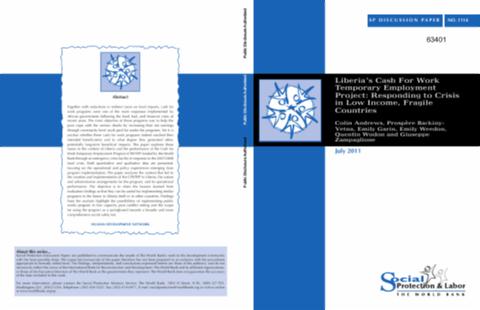Resource information
Together with reductions in indirect taxes on food imports, cash for work programs were one of the main responses implemented by African governments following the food, fuel, and financial crisis of recent years. The main objective of those programs was to help the poor cope with the various shocks by increasing their net earnings through community-level work paid for under the programs. Yet it is unclear whether these cash for work programs indeed reached their intended beneficiaries and to what degree they generated other, potentially long-term beneficial impacts. This paper explores these issues in the context of Liberia and the performance of the Cash for Work Temporary Employment Program (CfWTEP) funded by the World Bank through an emergency crisis facility in response to the 2007/2008 food crisis. Both quantitative and qualitative data are presented, focusing on the operational and policy experiences emerging from program implementation. This paper analyzes the context that led to the creation and implementation of the CfWTEP in Liberia, the nature and administrative arrangements for the program, and its operational performance. The objective is to share the lessons learned from evaluation findings so that they can be useful for implementing similar programs in the future in Liberia itself or in other countries. Findings from the analysis highlight the possibilities of implementing public works program in low capacity, post conflict setting and the scope for using the program as a springboard towards a broader and more comprehensive social safety net.


